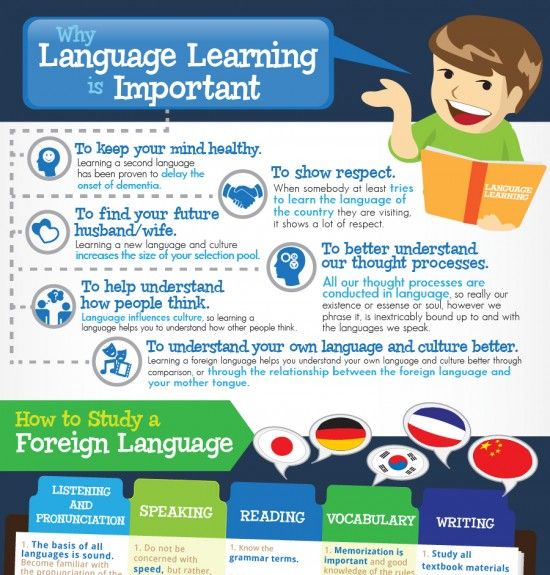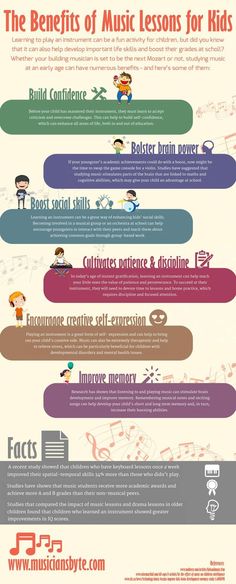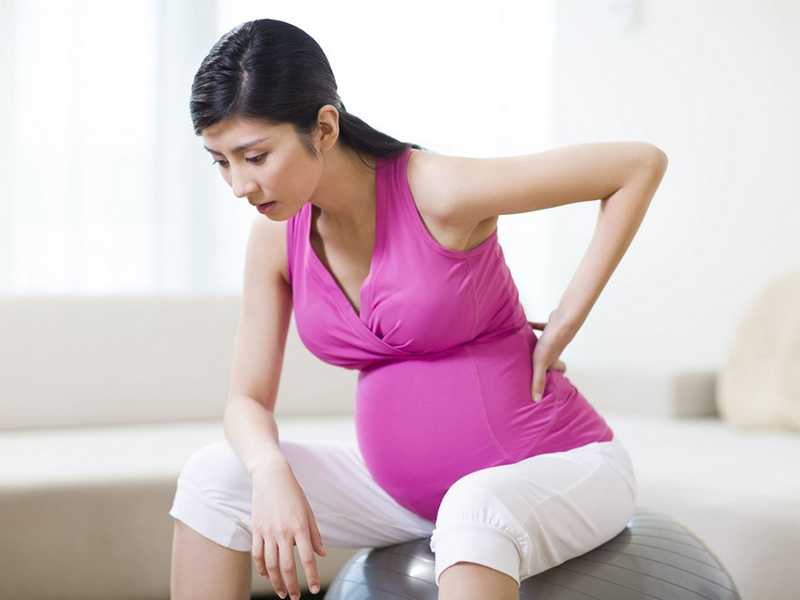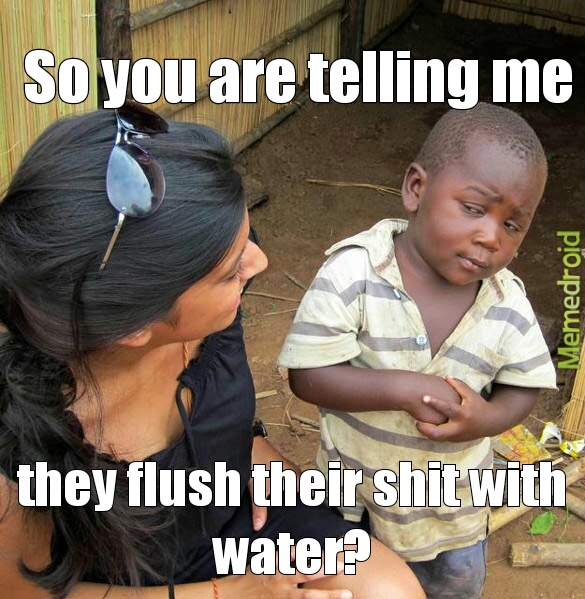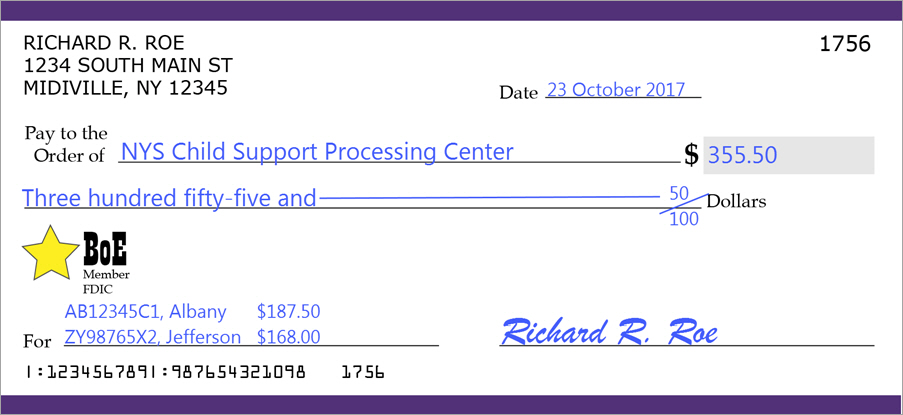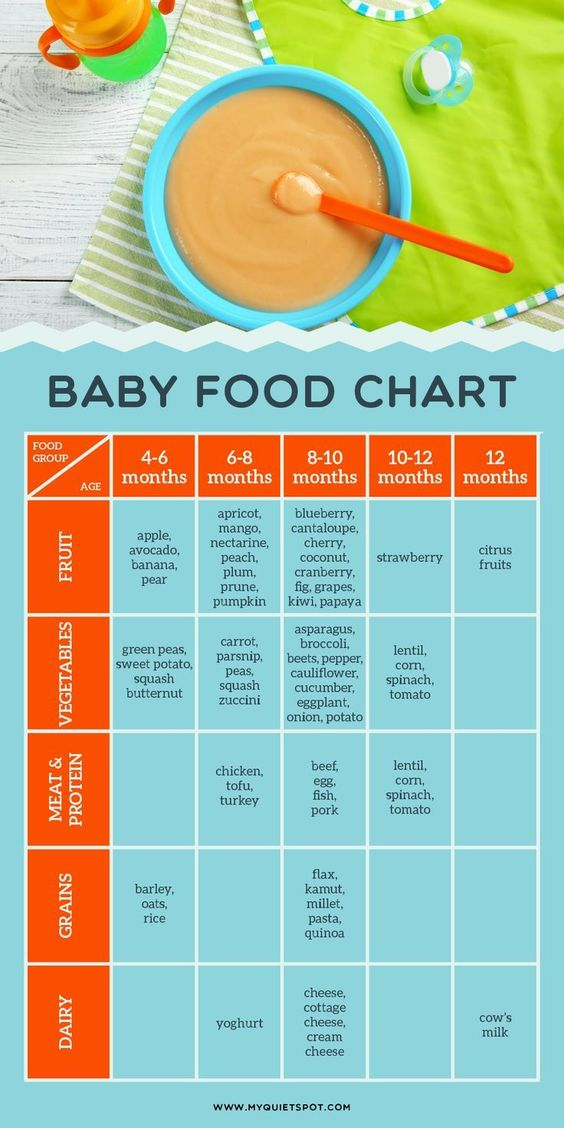Causes of infant hiccups
Newborn Baby Hiccups: Causes, Cures and Prevention
From little coos to tiny yawns, babies do the most adorable things, but sometimes it’s hard to know if what they’re doing is a normal part of development. When your infant hiccups, it can sound cute and sweet, but you might be wondering—is it normal?
The short answer is yes. Baby and newborn hiccups are completely harmless and just one sign of baby’s growth and development. “Hiccups, which occur in the gastrointestinal tract, almost never indicate a problem in newborns or infants,” says Christal-Joy Forgenie, MD, a pediatrician with Soha Pediatrics in New York City. Still, they can be a little disturbing for you and your sweetheart. Wondering how to get rid of baby hiccups? Read on to learn possible causes and how long episodes may last—plus, how to stop baby hiccups or, better yet, prevent them altogether.
In this article:
Why do babies get hiccups?
How long do baby hiccups last?
How to get rid of baby hiccups
Why Do Babies Get Hiccups?
Just like in adults, infant hiccups are caused by spasms of baby’s tiny and developing diaphragm, the large muscle that runs across the bottom of the rib cage and moves up and down as we breathe. Though nobody knows for sure why we hiccup (it doesn’t seem to have any obvious, useful purpose), these spasms can be triggered by many things.
Newborn hiccups are most frequently caused by baby overfeeding, eating too quickly or swallowing a lot of air. “Any of these things can lead to stomach distention,” Forgenie says. When the stomach distends it actually pushes against the diaphragm, which causes it to spasm, and voilà—hiccups! Forgenie adds that it’s very common for newborn hiccups to set in after or even during a feeding.
Suffice to say, if baby starts hiccuping as you’re trying to offer more boob or bottle, consider it a hint to take a breather. Some experts believe baby hiccups can be the result of food and acid rising up from the stomach when baby is full. Baby hiccups can also be related to overeating or eating too quickly. To that end, you may be able prevent hiccups by feeding baby slowly and taking breaks for burping.
Baby hiccups can also be the result of sudden changes in stomach temperature.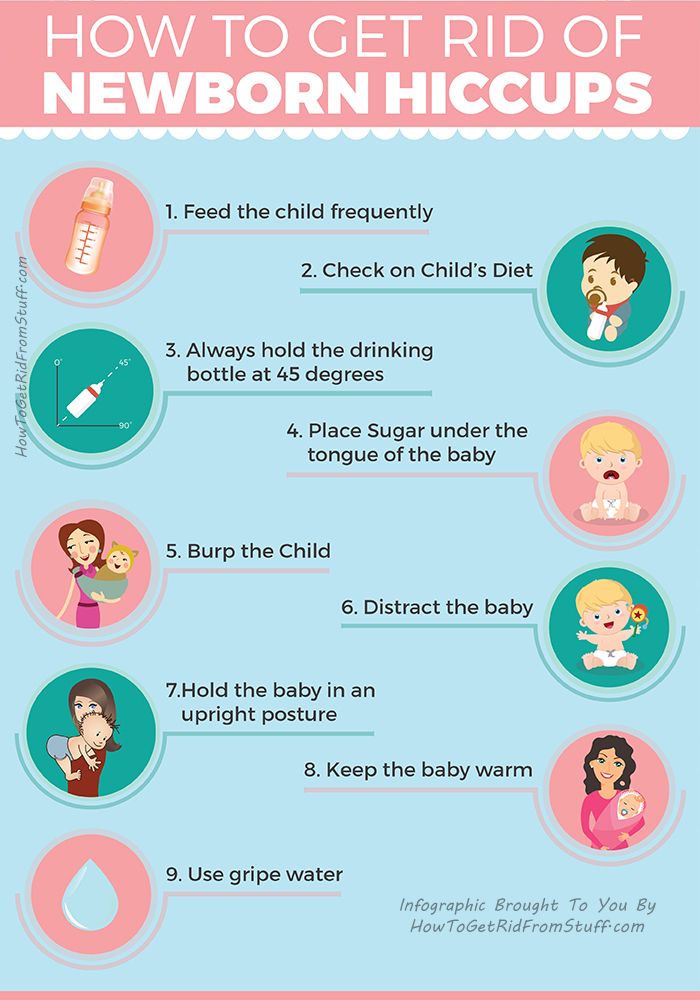 Say, for example, you give baby some cold milk and then a few minutes later feed them some warm rice cereal. According to Forgenie, this combination can actually trigger those baby hiccups.
Say, for example, you give baby some cold milk and then a few minutes later feed them some warm rice cereal. According to Forgenie, this combination can actually trigger those baby hiccups.
In addition to feeding-related triggers, once in a while, a case of constant baby or newborn hiccups can be caused by something entirely different. The culprit is usually gastroesophageal reflux, or GER as it’s often called. When baby suffers from gastroesophageal reflux, partially digested food and acidic juices from the stomach flow back up into the esophagus causing burning and discomfort. Since the esophagus passes through the diaphragm, it can get irritated and lead to lots of baby hiccups. “It sounds intense, but it’s quite common and doesn’t always create problems for babies,” Forgenie says.
It’s important to note that hiccupping in and of itself isn’t a sign of reflux. Here are some other clues to look out for that could mean GER:
- Baby is crying more frequently
- Baby arches their back excessively during or after regular feedings
- Baby is spitting up more than normal
If you notice several of these symptoms and suspect those baby or newborn hiccups may be due to gastroesophageal reflux, speak to your pediatrician.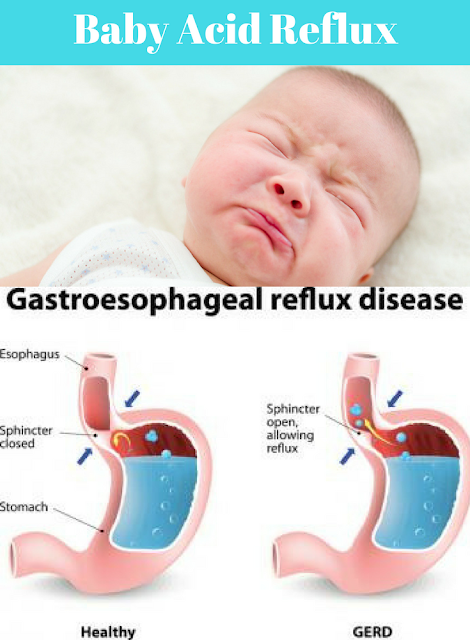 The good news is the condition is easily treated.
The good news is the condition is easily treated.
How Long Do Baby Hiccups Last?
Babies can have hiccups multiple times a day, lasting for 10 minutes or longer. As a general rule, if baby acts happy and doesn’t seem uncomfortable, baby hiccups aren’t a cause for concern. “It can be worrisome, especially for new moms and dads, but hiccups tend to go away after a few minutes,” says Robin Jacobson, MD, a clinical assistant professor of pediatrics at Hassenfeld Children’s Hospital at NYU Langone in New York City. You can just wait it out and allow the hiccups to resolve on their own. If the hiccups persist and seem to be causing baby distress, call your pediatrician to figure out the cause.
Can you put baby down with hiccups?
In most cases, it’s totally fine to put baby on their back when they have hiccups; those little diaphragm spasms don’t interfere with breathing so there’s no physical or medical reason not to. Of course, as you know, hiccups can be a pesky nuisance, and baby may find having a case annoying, disruptive or mildly uncomfortable, in which case, you may want to hold them upright until the hiccuping subsidies.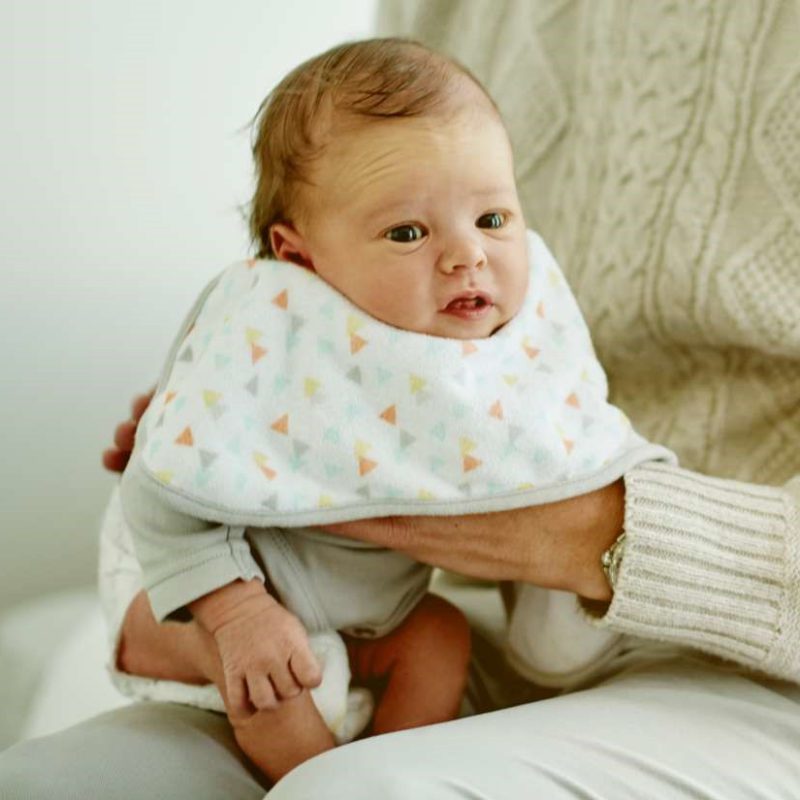
That said, babies who are hiccuping as a result of reflux may be prone to vomiting; if your little one seems to be having a painful GER episode, try keeping them upright. It’s always best to consult with your doctor if you have concerns.
How to Get Rid of Baby Hiccups
Now that you know why they can happen, you’re probably wondering: How do you get rid of baby hiccups? Even if baby hiccups are almost always harmless, it’s normal for you to want your child to get some relief from those incessant spasms. With that in mind, we’ve rounded up the top tips for how to stop baby hiccups. (Hint: It has a lot to do with burping!)
Generally, if it seems baby or newborn hiccups are related to overfeeding, belly distention or reflux, “you can help alleviate hiccups by feeding baby smaller amounts more often, and remember to burp baby frequently,” says Karen Fratantoni, MD, MPH, a pediatrician at Children’s National Health System.
How to stop baby hiccups in breastfed babies
When offering baby your breast, be sure to mind these tips to help curb hiccups:
• Burp baby as you switch from one breast to the other.
• If swallowing air seems to be the main issue, it’s a good idea to reevaluate the latch. Make sure baby’s lips are sealed around the areola of your breast, not just the nipple.
How to stop baby hiccups in bottle-fed babies
Giving your little one a bottle? Here’s how to get rid of any resulting baby hiccups:
• Forgenie recommends stopping halfway through a bottle to burp baby and then complete the feeding after a 5- to 10-minute break. “Completing the feeding while baby is relaxed can actually end the hiccupping,” she says.
• Try repositioning the bottle so the air isn’t near the nipple, but is instead at the bottom of the bottle.
How to stop baby hiccups for bottle-fed or breastfed babies
Regardless of whether you’re giving baby the bottle or the breast, these tips can help to stop baby hiccups:
• Sit baby upright for 20 to 30 minutes after each feeding.
• If there’s no identifiable cause of the hiccups, rubbing baby’s back or rocking them can also help.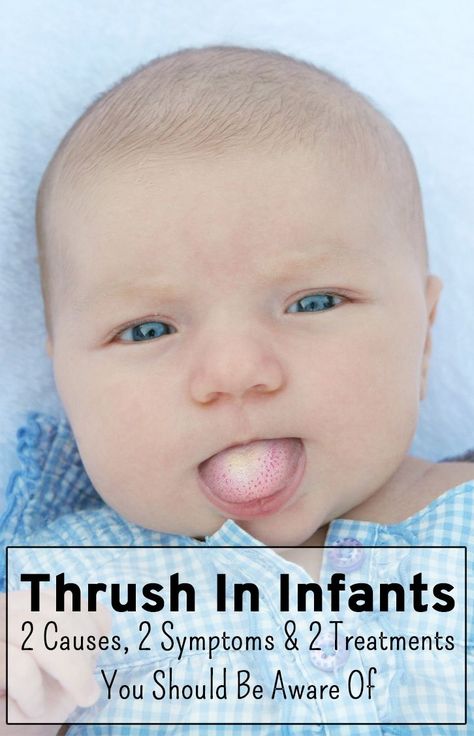
What not to do for baby hiccups
While there are several ways to try and stop baby hiccups, there are a few things that should be avoided altogether:
• Never startle or scare baby to combat hiccups. “Really, none of that stuff works,” Jacobson says.
• Don’t put a wet cloth on their forehead, which doesn’t help either.
• Holding one’s breath is one remedy that should never be attempted on baby. It’s dangerous, plain and simple.
• Many people recommend pulling on baby’s tongue and pressing on their forehead or anterior fontanelle (the soft part of baby’s head), Forgenie says, but this can hurt baby. “Overall, the best thing to do is to wait it out and rest assured that the hiccups will resolve on their own,” she says.
How to Prevent Baby Hiccups
Of course, you may want to try a few tricks to prevent baby hiccups from happening in the first place. While there’s no guaranteed way to ward off hiccups, here are a few prevention tips to keep in mind:
• The key to preventing baby hiccups is to avoid overfeeding, Jacobson says. Take breaks during feedings to burp baby so the stomach doesn’t fill too much, too quickly.
Take breaks during feedings to burp baby so the stomach doesn’t fill too much, too quickly.
• For bottle-fed babies, make sure to tip the bottle while feeding to limit the amount of air baby swallows.
• “Holding baby up for a few minutes after feedings before putting them down can help prevent baby hiccups,” Jacobson says, since how you position baby can impact any reflux.
Baby hiccups tend to happen less frequently as kids mature. “Usually by 6 months hiccups decrease a bit, but it’s not worrisome if, say, a baby of 9 months has the hiccups,” Jacobson says.
At the end of the day, remember that baby or newborn hiccups are rarely a cause for concern. “They’re a very common, benign occurrence in infants,” Fratantoni says. “You can try these remedies or just wait it out—they’re normal and will go away on their own.”
Yes, some infants are just prone to frequent hiccuping; in fact, plenty of babies get them in the womb too! (If you ever felt your bump jump in a rhythmic pattern, baby hiccups were likely the culprit!) Hiccups can be a minor disturbance, but that doesn’t mean they’re harmful.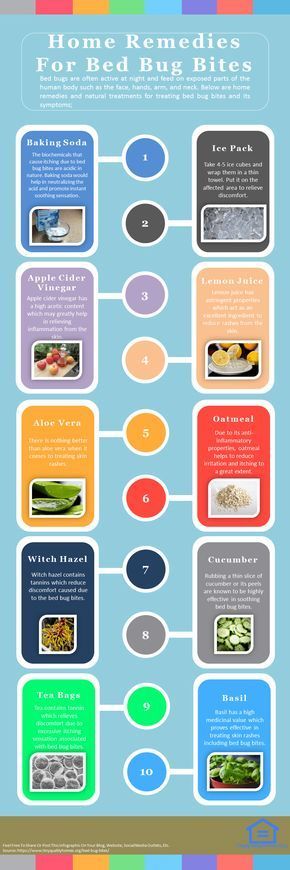 Nevertheless, if baby doesn’t stop hiccuping after a long period of time, don’t hesitate to contact your pediatrician. In the meantime, if your infant has the occasional episode here or there, try to worry less and enjoy the adorable little high-pitched sound while it lasts…
Nevertheless, if baby doesn’t stop hiccuping after a long period of time, don’t hesitate to contact your pediatrician. In the meantime, if your infant has the occasional episode here or there, try to worry less and enjoy the adorable little high-pitched sound while it lasts…
About the experts:
Christal-Joy Forgenie, MD, is a pediatrician with SoHa Pediatrics in New York City. Before joining SoHa, Forgenie worked at Montefiore Medical Center and then went on to work in private practice in Washington Heights. She earned her medical degree from Stonybrook University School of Medicine in New York.
Karen Fratantoni, MD, MPH, is a pediatrician at Children’s National Health System and the medical director of the Complex Care Program. She earned her medical degree from Eastern Virginia Medical School.
Robin Jacobson, MD, is a pediatrician and clinical assistant professor of pediatrics at Hassenfeld Children’s Hospital at NYU Langone in New York City.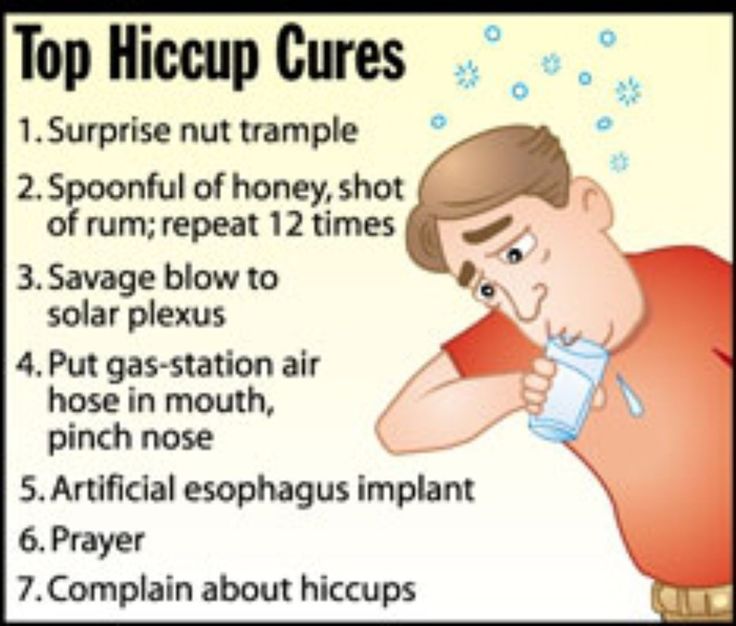 She earned her medical degree from Tufts University.
She earned her medical degree from Tufts University.
Please note: The Bump and the materials and information it contains are not intended to, and do not constitute, medical or other health advice or diagnosis and should not be used as such. You should always consult with a qualified physician or health professional about your specific circumstances.
Plus, more from The Bump:
What to Do for a Gassy Baby
Colic 101: How to Help Soothe Your Colicky Baby
What to Know About Using Gripe Water for Colic and Tummy Troubles
Here’s What to Do When Your Baby Has the Hiccups – Cleveland Clinic
Your brand new baby has a serious case of hiccups. And while they’re a little bit adorable, you’re also wondering if there’s any cause for concern.
“Baby hiccups are very common, and they aren’t normally a problem,” says pediatrician Kylie Liermann, DO. “In fact, they usually bother parents more than the baby.”
To calm your new parent nerves a little, Dr.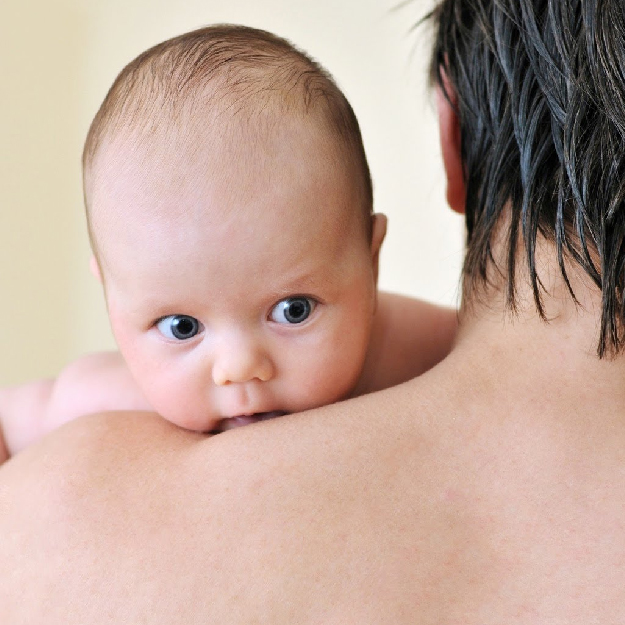 Liermann explains what causes baby hiccups and how to get rid of them so you (and baby) can breathe easier.
Liermann explains what causes baby hiccups and how to get rid of them so you (and baby) can breathe easier.
Why do babies get hiccups?
Hiccups are most likely caused by irritation to the diaphragm, the muscle at the base of the lungs. Sometimes, that muscle starts to spasm or cramp. That causes the vocal cords to clamp shut, creating that distinctive “hic!” sound you know and dread.
Developing babies can get hiccups even before they’re born, and many pregnant people have felt the telltale flutters in their bellies.
Hiccups are especially common in newborns and infants. “We don’t know exactly why, but hiccups may be caused by increased gas in the stomach,” Dr. Liermann says. “If babies overfeed or gulp air during eating, that could cause the stomach to expand and rub against the diaphragm, generating those hiccups.”
Advertising Policy
Hiccups and gastroesophageal reflux
Usually, hiccups don’t bother babies. But sometimes, hiccups are a sign of gastroesophageal reflux (GERD). Reflux causes stomach acid to back up into the baby’s esophagus.
Reflux causes stomach acid to back up into the baby’s esophagus.
If your baby has GERD, hiccups won’t be the only symptom, Dr. Liermann says. Infants with reflux also have signs such as:
- Coughing.
- Spitting up.
- Irritability and crying.
- Arching the back, especially during or after a feeding.
If you notice these signs, talk to your doctor about whether your baby might have reflux and how to manage it.
How to stop baby hiccups
If your baby doesn’t have reflux symptoms, don’t stress over hiccups, Dr. Liermann says. But if those little “hics!” are bothering you, there are some things you can try.
Change feeding positions
Try feeding your little one in a more upright position, Dr. Liermann suggests. Propping your baby up on a pillow so they aren’t lying flat may help them take in less air at mealtimes.
Advertising Policy
Burp more frequently
“Burping usually helps with hiccups,” Dr. Liermann says.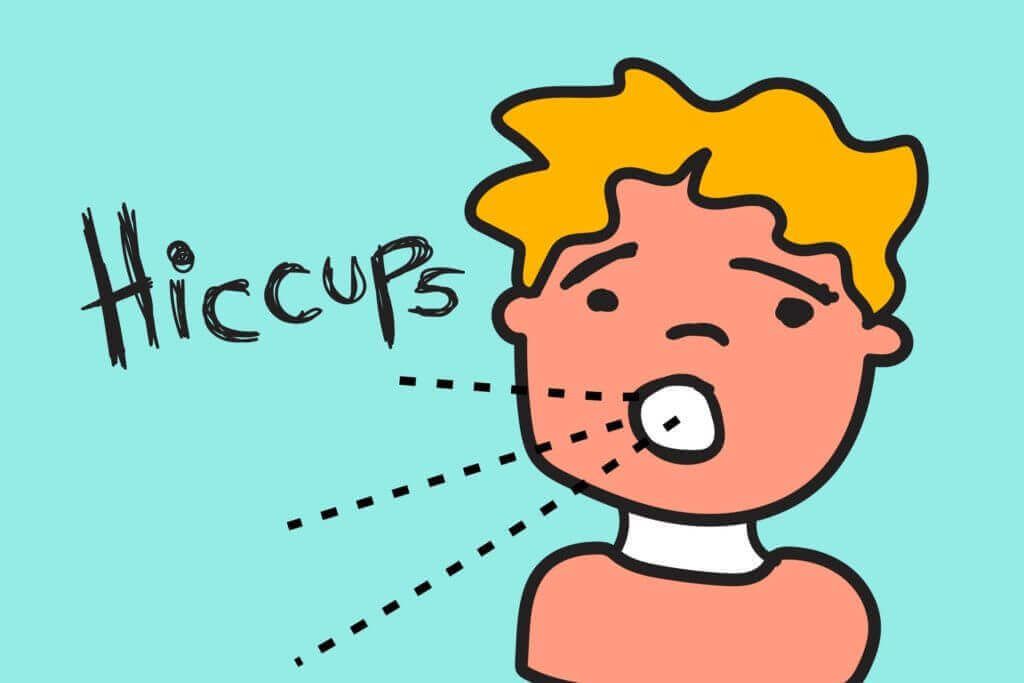 Burp your baby during feeding to prevent hiccups from striking. Try taking a burp break after 2 or 3 ounces.
Burp your baby during feeding to prevent hiccups from striking. Try taking a burp break after 2 or 3 ounces.
If you’re nursing, burp your baby before you switch sides. If your nugget already has hiccups, you can try to relieve them with some gentle pats on the back.
Reach for the binky
Pacifiers can sometimes stop hiccups in their tracks. “The sucking motion can help relax the diaphragm,” Dr. Liermann explains.
Give gripe water
Gripe water is an over-the-counter blend of herbs marketed as a treatment for colic and tummy troubles. Some parents find it helps with hiccups, too.
But above all, says Dr. Liermann: Don’t fret. “Hiccups stop on their own and don’t cause discomfort to babies. So don’t feel you need to treat them,” she says.
Hiccups in newborns
home
reference Information
Resources for Parents
Hiccups in newborns
Hiccups is a physiological process in which there is a convulsive contraction of the diaphragm, which is a muscular barrier between the abdominal and chest cavities.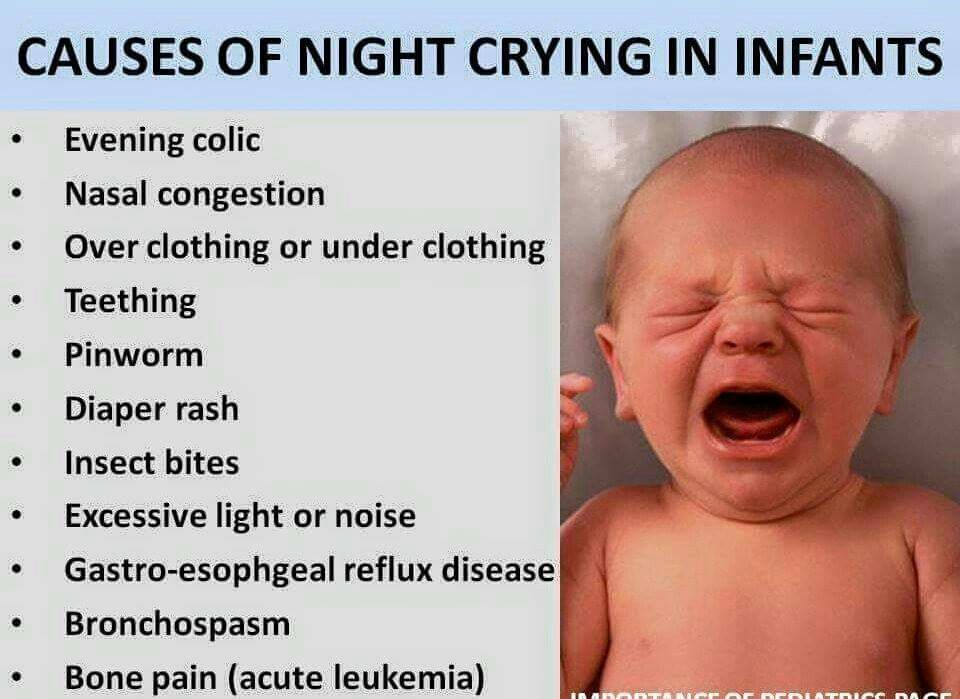 During hiccuping, the glottis is closed, which leads to the appearance of a characteristic sound and movement. In newborns, the diaphragm contraction mechanism is very excitable, and therefore children in the first months of life are often prone to hiccups.
During hiccuping, the glottis is closed, which leads to the appearance of a characteristic sound and movement. In newborns, the diaphragm contraction mechanism is very excitable, and therefore children in the first months of life are often prone to hiccups.
Causes of hiccups in newborns: hypothermia, overeating, swallowing large amounts of air during feeding, or the rapid absorption of food.
As a rule, hiccups most often occur due to mistakes in feeding the baby. In the process of overeating, a large amount of food absorbed stretches the stomach walls, which leads to a contraction of the diaphragm and hiccups.
Prolonged hiccups that do not subside can be a dangerous signal. This condition often occurs with pneumonia, diseases of the gastrointestinal tract, injuries of the spinal cord and chest. Sometimes the cause of hiccups can be helminthiasis and infectious pathologies.
A very common cause of hiccups is hypothermia. This is a kind of signal from the child's body for parents about the problem that has arisen.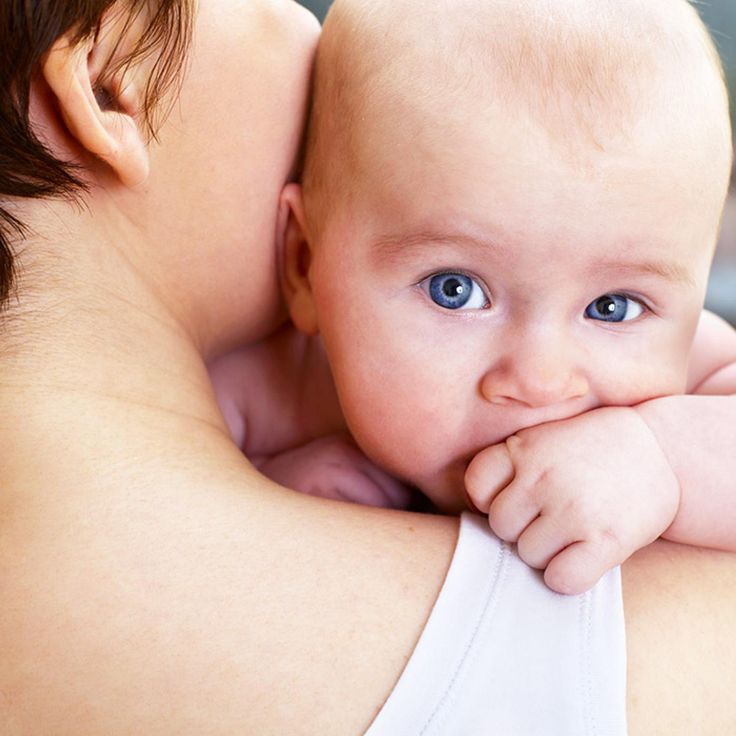
Sometimes hiccups can occur in case of emotional shock, stress or fear. Loud music, bright lights, screams and other “noisy” manifestations of the life of those around the baby can be to blame for everything.
Symptoms of hiccups in newborns. As a rule, bouts of hiccups last about 10-15 minutes and do not cause much discomfort to the baby (at the same time, he behaves quite calmly). But sometimes this condition can be longer, as a result of which the access of oxygen is difficult and it becomes difficult for the child to breathe. In this case, urgent consultation with a specialist is required.
First of all, parents need to know - if the baby has hiccups regularly for two weeks and does not subside for a long time, it must be shown to the pediatrician to exclude the occurrence of various pathologies.
To rid the child of hiccups, first of all, it is necessary to remove the provoking factor. It must be warmed in case of hypothermia, watered in case of thirst and calmed in case of excitement. Also, in the process of feeding, the baby's head must be placed so that he cannot swallow air with food.
Also, in the process of feeding, the baby's head must be placed so that he cannot swallow air with food.
To eliminate hiccups, a baby can drop a drop of lemon juice or chamomile infusion under the tongue. If the hiccups do not go away, the child should be allowed to drink water, and then attach it to the chest.
How to properly feed a newborn: some useful tips.
The main rule is that the child should be fed only when he is really hungry. during this period, the baby should be calm. In the process of feeding, you need to make sure that the newborn does not swallow too quickly. With very active sucking, it needs to be removed from the chest for some insignificant time and held in a “column” so that all the excess air that has accumulated in the stomach comes out. For children who are bottle-fed, it is necessary to monitor the hole in the nipple. It shouldn't be very big. After feeding the baby, you need to hold it in an upright position with your tummy towards you.
If a child’s hiccups appear due to stress, he must be protected in every possible way from emotional shocks.
That's all the simple tips with which you can defeat hiccups in newborns and thereby eliminate the worries of their parents. After all, the greatest happiness is a healthy baby.
Share:
Hiccups in adults and children. How to stop hiccups - clinic "Dobrobut"
Main
Medical Library Dobrobut
Publication date: 2020-02-17
Causes of hiccups in adults and children, how to get rid of
Hiccups in children and adults are often perceived as normal. But you need to know that in some cases it can be a sign of serious pathological problems. With constant and prolonged hiccups, a doctor's consultation is necessary. A pediatrician will help to understand the causes of this problem in a child. Adults are advised to consult a neurologist.
Causes of hiccups
If the problem has affected the child and worries regularly, then pathologies should be ruled out and only then the cause should be looked for.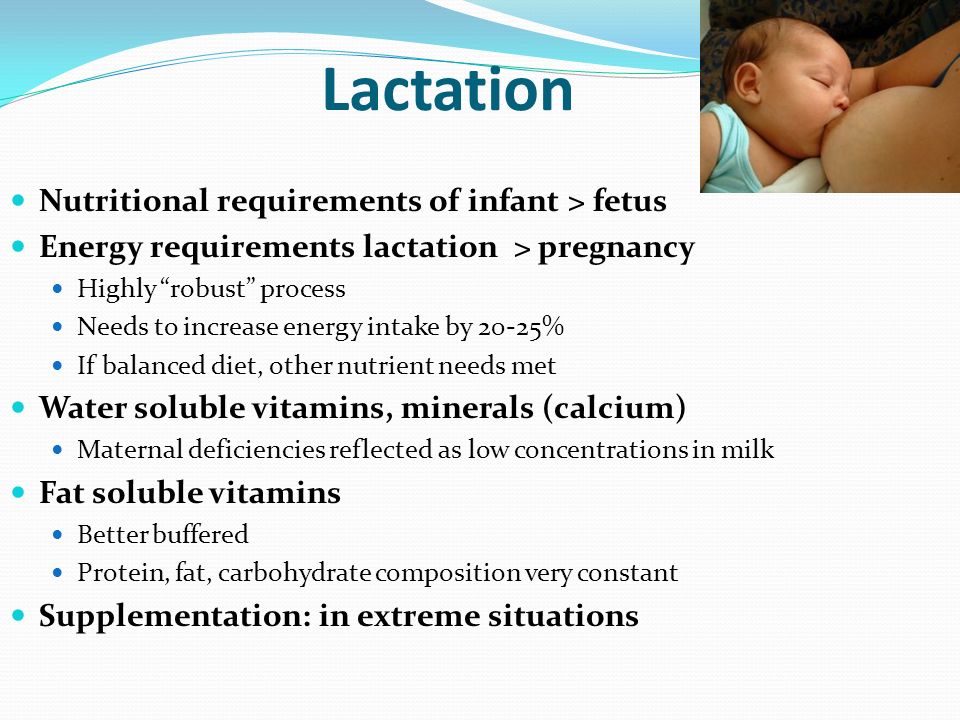 Perhaps the baby just overate, but hiccups in newborns may be due to an imperfect connection between the diaphragm and the brain, or swallowing air during feeding. The problem can also begin with hypothermia, so babies need to be dressed slightly warmer than an adult.
Perhaps the baby just overate, but hiccups in newborns may be due to an imperfect connection between the diaphragm and the brain, or swallowing air during feeding. The problem can also begin with hypothermia, so babies need to be dressed slightly warmer than an adult.
Hiccups in adults may occur due to:
- overeating;
- intake of carbonated drinks;
- hysterics and sobs;
- fits of laughter.
Hiccups often occur during pregnancy due to increased intra-abdominal pressure. In addition, the condition under consideration can occur as a manifestation of stress, drug poisoning, and excessive consumption of alcoholic beverages.
No matter what causes hiccups, you need to know how to quickly stop an attack of convulsive contraction of the muscles of the diaphragm - this is how this problem is classified in medicine.
How to get rid of hiccups
Hiccups in a small child are not harmful to health, but you need to make every effort to ensure that the attack ends.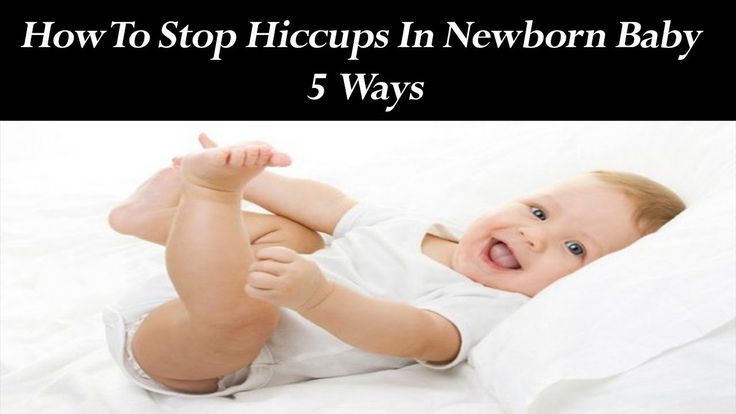 In no case should you scare the baby - the grandmother's way of quickly getting rid of hiccups can provoke disorders of the nervous system, since it is not yet fully formed. Boiled water will be the best solution - just a few sips and after 10-30 seconds the diaphragm will stop convulsively contracting.
In no case should you scare the baby - the grandmother's way of quickly getting rid of hiccups can provoke disorders of the nervous system, since it is not yet fully formed. Boiled water will be the best solution - just a few sips and after 10-30 seconds the diaphragm will stop convulsively contracting.
How to get rid of hiccups in adults and older children:
- suck and chew/swallow a slice of lemon slowly;
- Sip slowly a glass of water at room temperature;
- Eat 1-2 teaspoons of sugar with water (better - dissolve 2 pieces of refined sugar).
How to quickly get rid of hiccups: take a deep breath, opening your mouth wide. Hold your breath with your mouth open for a few seconds. Usually the attack stops immediately, but the reception can be repeated several times. If the problem is triggered by hypothermia, dress warmly, drink hot tea or cover yourself with a blanket.
What should I do if I have hiccups that occur frequently and are characterized by a prolonged attack? There are specific drugs:
- Cisapride - take 1 tablet before meals and 1 tablet at night;
- Baclofen - an average of 10 mg 3 times a day;
- Chlorpromazine - 25 mg intramuscularly 4 times a day.
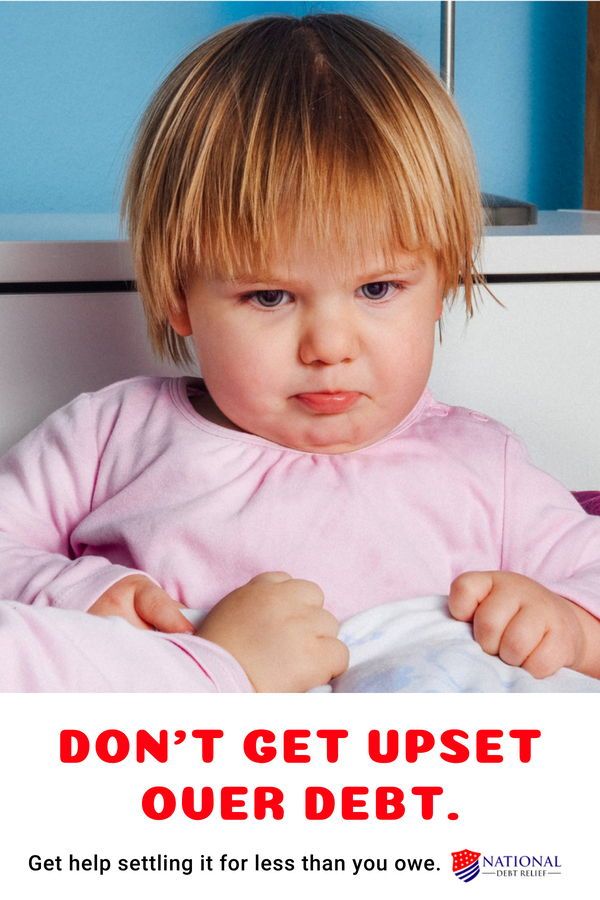
Such appointments are made by a doctor, since self-administration of medicines is fraught with undesirable consequences, severe side effects.
You can find out how to stop hiccups on your own and what will help your child at an appointment with a neurologist or pediatrician. And you can sign up for a consultation with specialists on our website dobrobut.com
Do you want to get an online explanation from the doctor of the Dobrobut MS?
Download our Google Play and App Store app
Our doctors
See all doctors 633
Our certificates
Certificate no. QIZ 804 468 C1
Certificate no. QIZ 804 469 C1
Certificate No. QIZ 804 470 C1
Certificate no. QIZ 804 471 C1
QIZ 804 471 C1
View all certificates
Request a call back
Enter your phone number
Other articles
Hypospadias: causes, classification and treatment
Hypospadias is a congenital abnormality of the urethra. Hypospadias is diagnosed in newborn boys with a frequency of 1:125. Hypospadias requires mandatory surgical treatment
Types of mastectomy and breast reconstruction. Features of rehabilitation after mastectomy
There are many techniques for mastectomy and breast reconstruction. Which of them to apply for a particular woman - the doctor decides. The rehabilitation period is important in breast reconstruction after mastectomy
Myopia - what is the diagnosis, degree and treatment of myopia
Causes of myopia.

